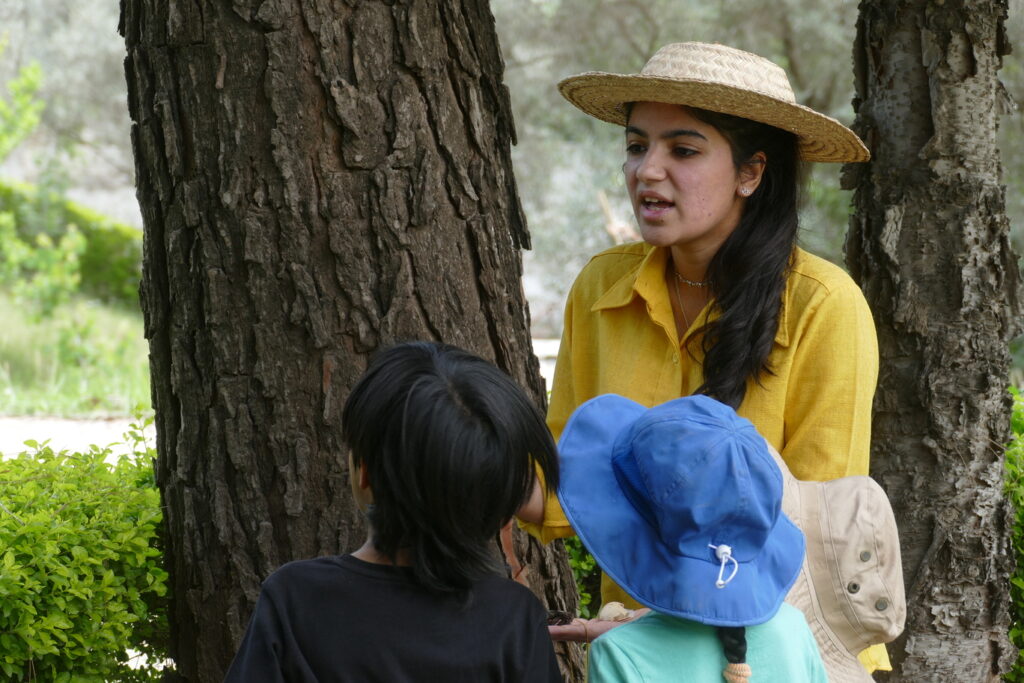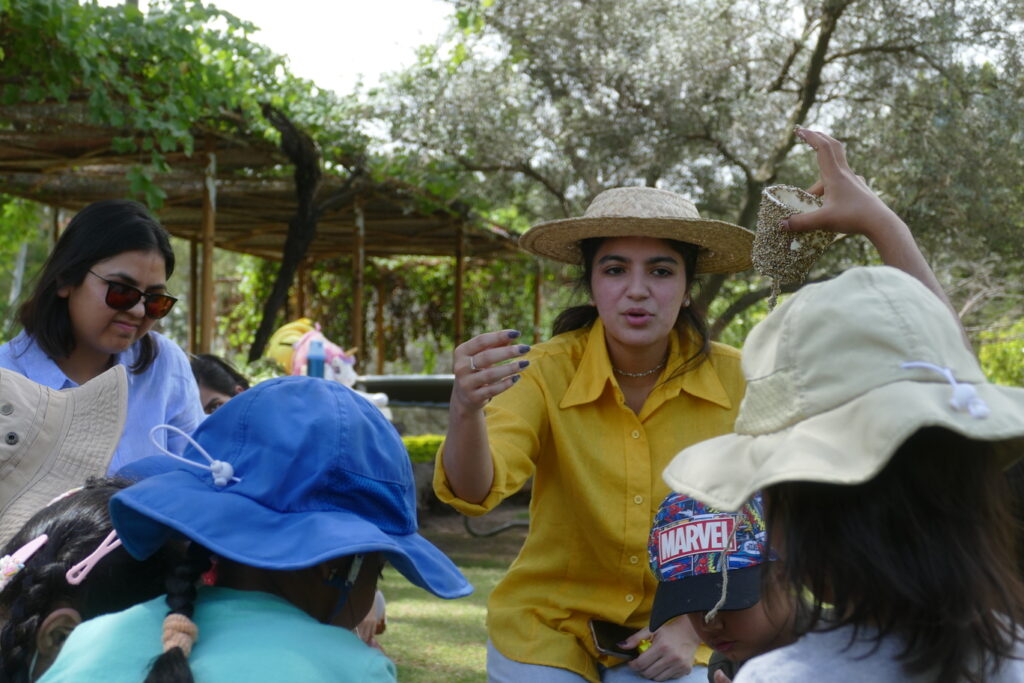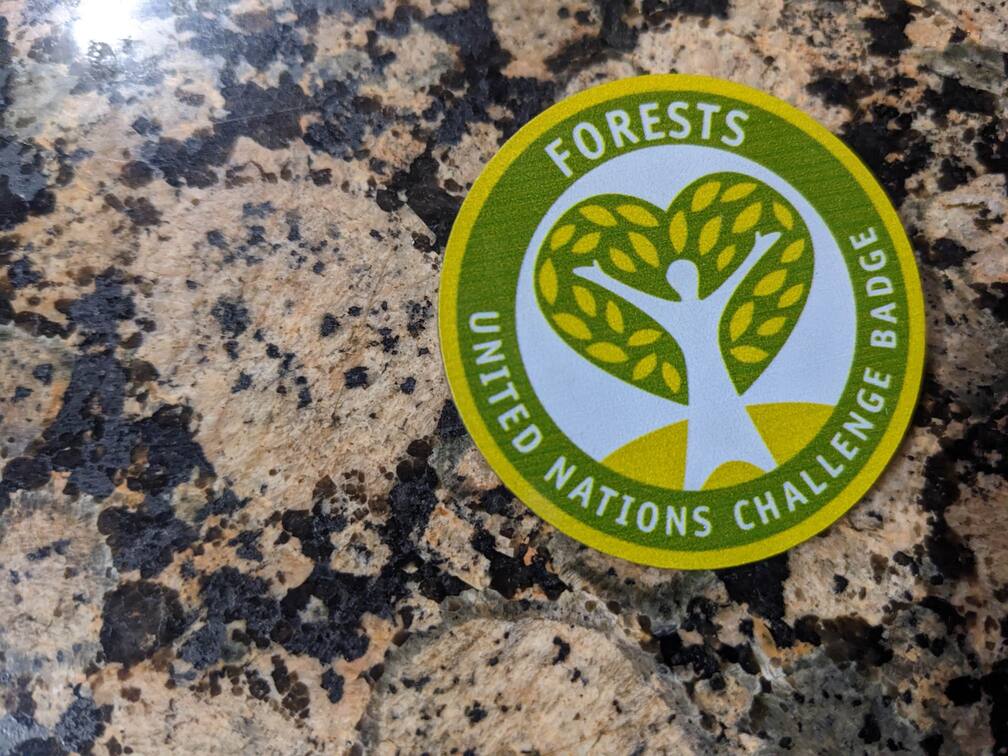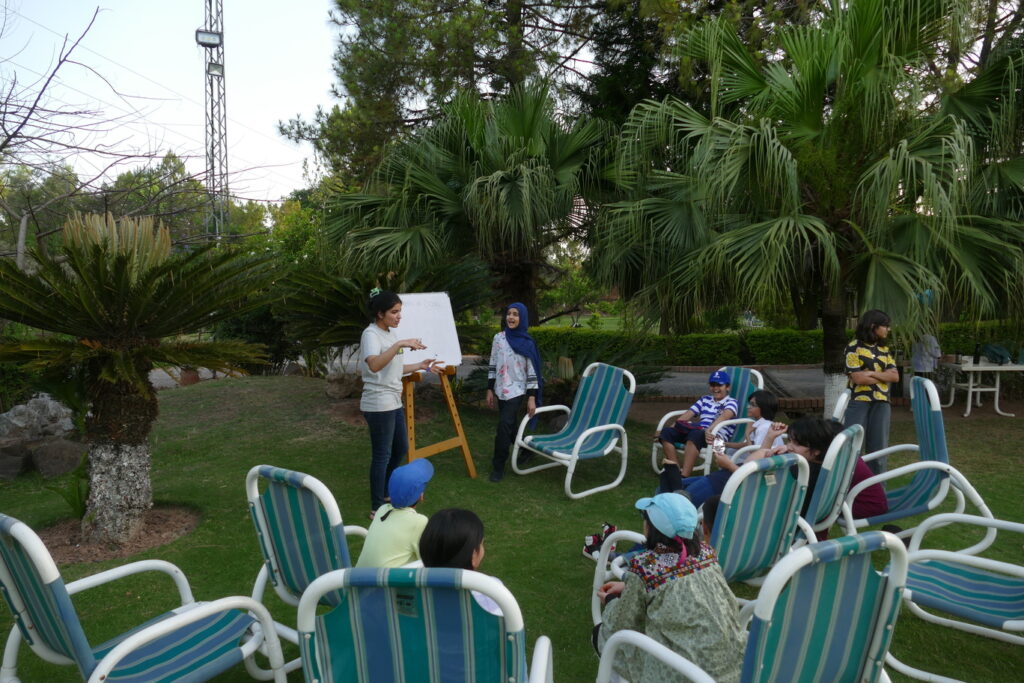When I was younger, I had an absolute favorite activity: csundérozás. Csundérozás is a slang word that describes a day spent in nature with a campfire, preparing food by the fire, making music and camping. It is only one word, but it paints a very specific picture in my mind and brings back fond memories from my childhood. Being among friends, singing along while someone plays the guitar, learning how to build a fire, making my own food (and sometimes burning it) over the flames or in the ashes, and falling into deep sleep in my comfy sleeping bag inside the tent. I am sure that these core memories shaped the way I developed over the next years, and led to my deep love for the outdoors. And feeling comfortable in nature eventually culminated in this idea to cycle full-time for 1,5 years, while living on the road, mostly inside a tent.
Profound experiences in nature during childhood shape the way we develop as adults. Love for nature, curiosity and the sense of wonder cannot be evoked solely by long presentations inside a classroom. And this is the realization that motivated four sisters in the Pakistani capital of Islamabad to start their own, very unique nature camp, not only igniting the curiosity for nature within children, but also breaking the walls of expectations around women in Pakistan.
A journey from feeling alone to having a community
Maria Hashmi is a 23-year-old Pakistani conservationist with a passion for all things nature and particularly reptiles. “I got my interest in wildlife conservation from my father, and for as long as I can remember, learning about wildlife has been my safe space,” Maria tells us as we visit her family farm in the heart of Islamabad. “My father is a hunter and knows a lot about wildlife. When I was growing up, we had all kinds of wild animals at home, and I had a deep fascination towards them from a very young age.” However, her schoolmates didn’t quite share her interest, and growing up, she found herself somewhat of an outcast because of that. Even within her family, everybody around her believed that this “craze” for wildlife will fade with time. After all, there are many expectations put upon Pakistani women by society, and a career in wildlife conservation does not fit the traditional picture.
But Maria had other ideas for her future. She knew that she wanted to break the mould, and even while her parents and schoolmates were sceptical, she continued to work hard and educate herself about wildlife conservation. As she puts it:
“Pakistan is so rich in biodiversity, much of which is not even discovered yet, and in the meantime several species are declining by the day. There is so much to do for Pakistani nature, and we need everyone on board, women included.”


Maria in her element: teaching children about nature!
Thanks to social media and global connectivity, Maria didn’t have to feel alone for long. She could build up her conservation network, she set up her instagram account named @Rebelzoologist and started working for several international organisations on a voluntary basis. In the meantime, she quickly realised the lack of opportunities for women in Pakistan to conduct field work. Currently, she gets her hands dirty working side by side with her father on their private reserve in Southern Pakistan, where they monitor and manage animal populations and even reintroduce species that disappeared from the area. In autumn 2022, she came up with a new idea. Why not transfer her knowledge and passion for wildlife to children in Islamabad?
Building nature connections and human connections
“In my teens, I was feeling very alone with my passion for nature. That’s why I came up with the idea of building a nature-centric community for kids. Something that I was missing growing up,” Maria explains. “Particularly for youngsters living in Islamabad, their lives can be very detached from nature. And whatever they learn about nature protection, they learn in the classroom, within four walls.”
Instead of passive education, Maria’s vision was to encourage kids to be active protectors of the environment. She came across the YUNGA Challenge Badges developed in collaboration with United Nations agencies: They are courses that aim to raise awareness, educate and motivate youth to become an active agent of change in society. She delved into the guiding books developed by YUNGA, reached out to them for collaboration, and quickly acquired the necessary material to start the initiative she named “Little Rebels Nature Camp”.


The children who complete the Little Rebels Nature Camp receive a badge and certificate.
Contagious enthusiasm
Maria’s deep passion for nature protection quickly caught on within the family, and three of her sisters immediately got involved. The four sisters Maria, Mariam, Maha and Maham have created thematic camps on the topics of forests, biodiversity, pollinators and water, each consisting of four or five Saturdays or Sundays. Throughout this time the participating children can not only delve deeper into the topic, but also open up and build friendships in nature. The camps take place at the family’s own farm, and over the weekend we spent there, we had the chance to join three camp sessions.





In Maria’s nature camp, children can learn much about wildlife, as well as how to build a tent, make a campfire, catch their own fish and take care on the environment.
From learning about pollinators and watersheds through making bird feeders, catching and observing butterflies, learning how to build a tent to even learning the intricacies of fishing, the children had all kinds of adventures. When they made their own food over the fire they built, the excitement was bigger than the flame. And when they each received their own fishing rod and could fish their own fish for the first time in their lives – which, to our surprise, was quite successful – they went ecstatic. They not only experience deep nature connections, but they can share these with friends, while they learn how to work together as a team. And finally after completing the four-week camp, they get a nice badge and certificate. After the day’s activity is over and the parents arrive, many of the kids are so sad to go home. They want to spend more time outside. They want to continue adventuring. “I hope that after receiving my water badge, I can come again and get the other badges as well,” tells us one of the girls in the group.
More outdoor time needed
Although being only an observer throughout this weekend, seeing the emotional reactions of some of these kids brought back fond memories from my own childhood. Today’s youth needs more opportunities like this: learning about and from nature in nature. Only through forming nature experiences of their own and exploring biodiversity on a very local scale, will they start caring about their environment. Moreover, once they become passionate, many of them even have a good influence on their own parents and other kids around them.
Today’s youth also needs people like Maria, Mariam, Maha and Maham. Who dedicate their own time, energy and resources to give something valuable to the young generation, and who do their best to build a community that, hopefully throughout their lives, will finally make decisions that have nature in the focus.
